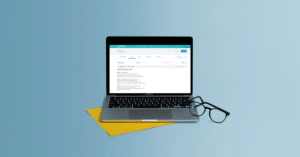We asked hundreds of SLPs what they wish they knew before their clinical fellowship (CF). Here are the common threads:
Relationships
1. Focus on building relationships with your staff, parents, and students.
2. The secretaries and custodians are going to be your best friends.
3. One of the hardest things to learn on the job is how to navigate difficult relationships with parents. It’s hard not to take things personally when things don’t go as expected, and also difficult to help counsel parents through tough situations. If you didn’t have a counseling class during your program, check out this blog post.
4. Your relationship with your students is what makes progress happen.
5. Be careful about who you talk to, what you say, and WHERE you are. You never know who is listening. Keep FERPA in mind at all times.
Learning
1. It’s okay to not know. No one expects you to know everything.
2. Don’t be afraid to ask questions.
3. Use this phrase when needed: “That’s a great question. I want to take some time to think about it and get back to you.” This is much better than giving a wrong answer and have to correct it later.
4. It’s a lot at first, but you will learn.
5. You’re gonna make mistakes. You know a lot, but–at the same time–not a lot.
6. You will write cringe-worthy goals. That’s okay.
7. You will have cringe-worthy IEP meetings. That’s okay.
8. You will have cringe-worthy therapy sessions. That’s okay.
9. Give yourself grace.
10. Do the CEUs even though they don’t count yet. They are an incredible confidence booster! The SLP Summit is free, and they offer 8 hours of courses every July and January!
Supervision
1. Utilize your supervisor as much as possible. They are there for you!
2. Ask your supervisor for feedback if you aren’t getting support.
3. You can respectfully disagree with your supervisor when they have a different perspective on best practices.
4. If your supervisor doesn’t work with students like your caseload, ask if any other district SLPs would be open to answering caseload-specific questions for advice.
5. You can get a mentor other than your supervisor. ASHA STEPS is a great way to find a mentor. They are open in February. An ASHA STEPS mentor may not be able to guide you through your CF, but they would be able to talk to you about the next steps in your career.
Your Speech Room (or Closet)
1. You do not need to have picture-perfect, laminated materials and detailed therapy plans to see your students make progress.
2. Don’t compare yourself to others when setting up your workspace. Less distraction is generally better, especially for neurodiverse students.
3. Do what’s best for YOUR students, not what other people are doing on the internet.
Paperwork and Productivity
1. The district will keep track of you by your paperwork and if you meet timelines. Focus on getting them done according to your district/state/federal guidelines.
2. Find shortcuts for productivity where you can. Here are some tips to get started.
3. Ask for templates that are available. You might have access to report templates, progress report templates, or goal banks. You most likely don’t have to write reports from scratch! Plug these into a text expander to save time.
4. Schedule time to write reports and protect that time so you can keep work at work.
5. Buy noise-canceling headphones for paperwork time.
Self Care
1. Build in self-care routines (e.g., prep meals, schedule exercise/time for hobbies, meet up with friends).
2. Take breaks at work.
Advocacy
Learning to advocate for yourself is a process. Phuong Lien Palafox is my absolute favorite. I watch her video “SLP, Hear Me Roar” when I need a reminder of why I do what I do.
And that’s a wrap! What stood out to you? Would you add anything else? Let us know in the comments below!





Leave a Reply